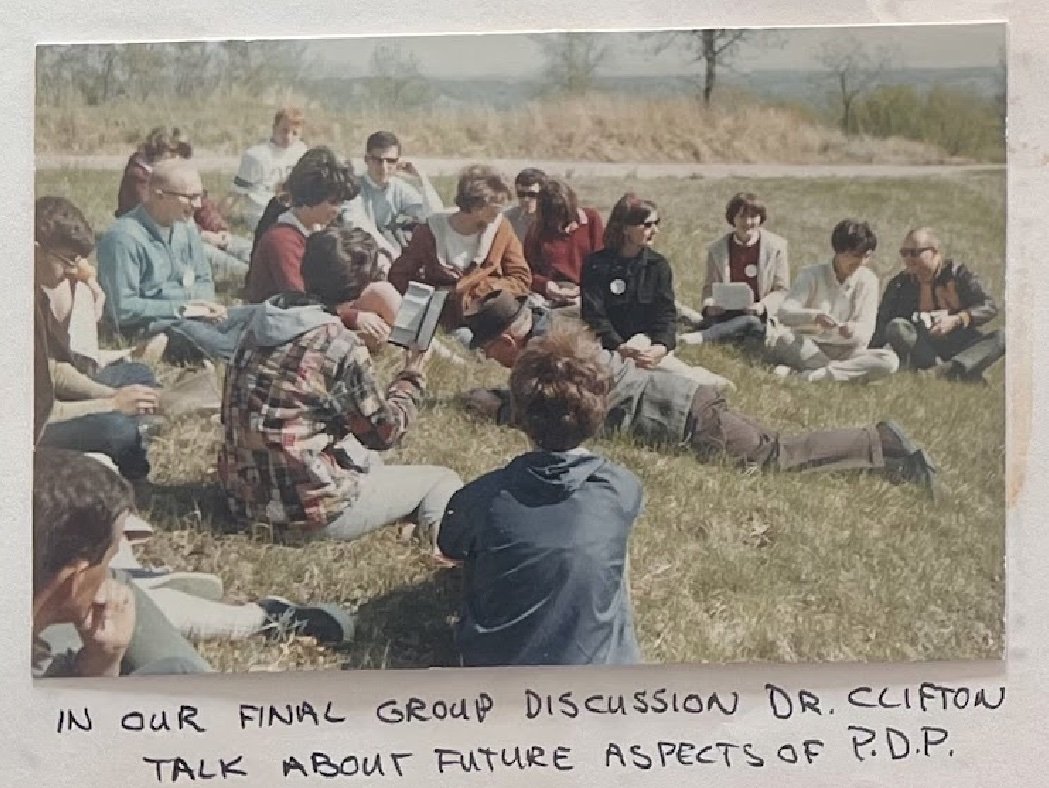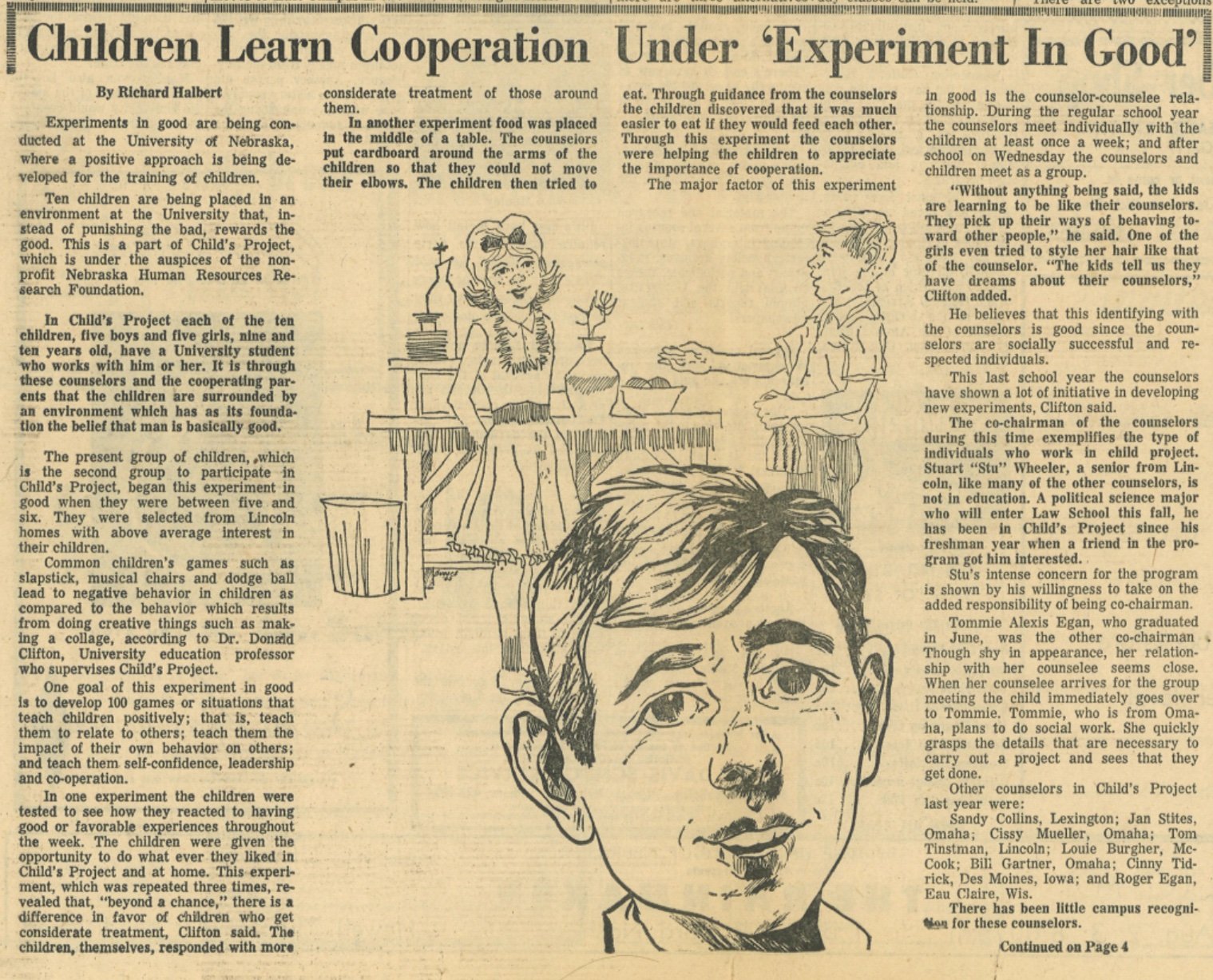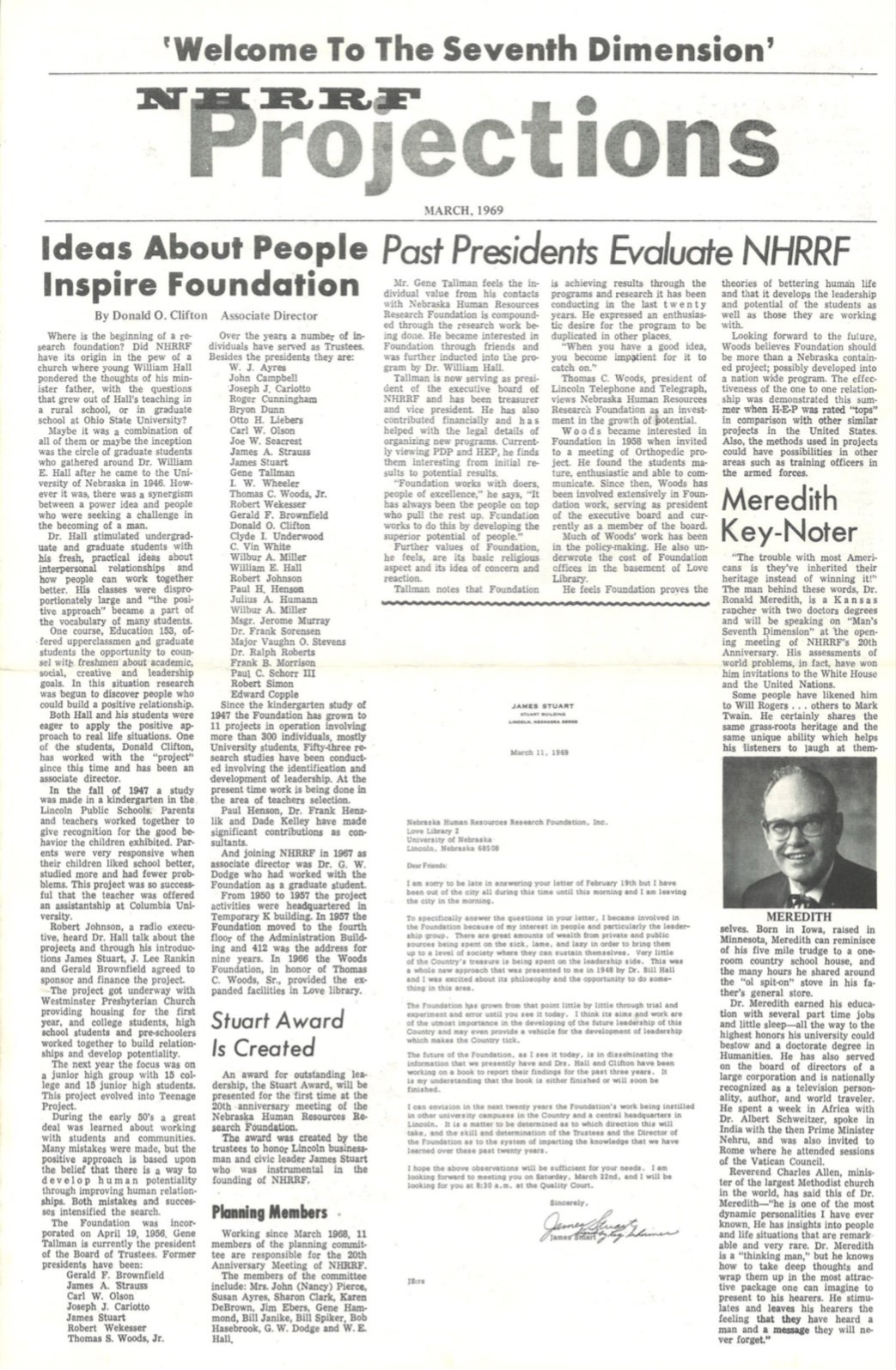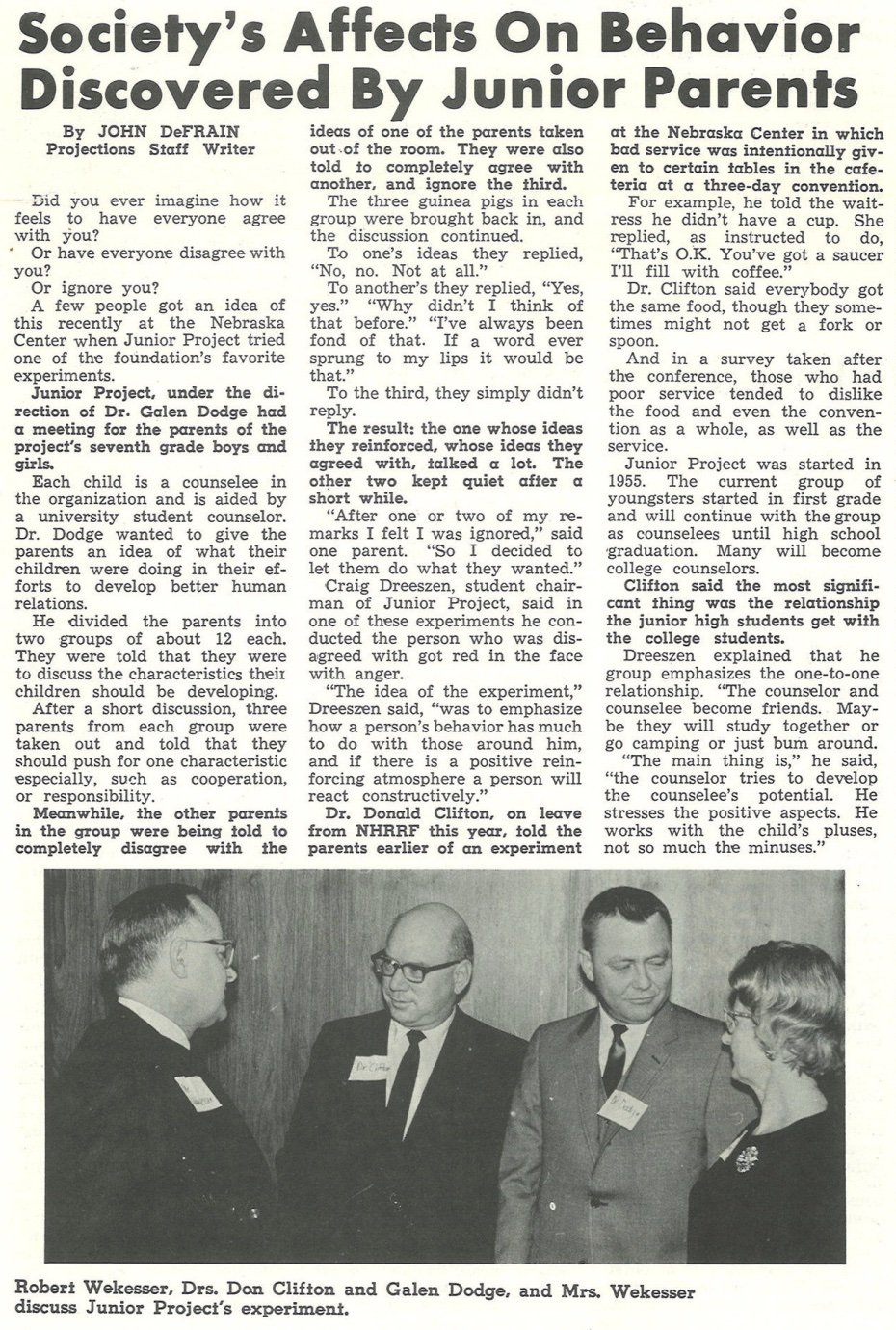Story 3 - Dr. Donald O. Clifton
Don Clifton is best known for creating the CliftonStrengths assessment, a tool that has helped almost 35 million people better understand their potential and how they can succeed in work and life. A teacher, researcher, and entrepreneur, Clifton was also the chairman of Selection Research, Inc. (SRI), and later Gallup, where he expanded his groundbreaking work in human potential.
The Beginning of a Mission
Reflecting on the origins of his mission, Clifton once said, “The story begins on the University of Nebraska campus. I was just out of the service, determined to complete my education, but perhaps more determined to discover something I thought was significant and worth doing. I met a psychology professor, Dr. William E. Hall, who was talking about human potentiality. He called it a positive approach. He had a well-structured conceptualization of the importance of developing strengths rather than repairing weaknesses in human beings. Since then, as we have had the opportunity, we have joined forces to study how man can develop his potentialities for success.”
Early Life and Education
Donald Clifton was born on February 5, 1924, on a farm outside of Butte, Nebraska, to Kem and Pearl Clifton. Growing up with his parents and older brother, Joe, he attended a small rural school before excelling at Butte High School, where he was an outstanding student, active in band, speech, and play production. His speaking abilities earned him first place in the extemporaneous division at the Boyd County speech competition. Clifton graduated as valedictorian of his class and received a Regents scholarship to the University of Nebraska-Lincoln (UNL).
In his second year at UNL, Clifton enlisted in the Army during World War II, serving as a navigator on a B-17 bomber in Italy from 1942 to 1945. For his heroism in battle, he was awarded the Distinguished Flying Cross. After the war, he returned to UNL and graduated in 1948 with a bachelor’s degree in Math Education.
From Mathematics to Psychology
Clifton initially had his sights set on becoming a mathematics teacher; however one of his professors, Dr. William Hall noticed his talents. Under Dr. Hall's role as his adviser, Clifton's career took a transformative turn from mathematics to psychology. Dr. Hall supervised Clifton's master's degree, endorsed his appointment to the teaching staff in 1950, and directed his PhD studies, which were completed in 1953.
During that time, together with Hall, Clifton founded the Nebraska Human Resources Research Foundation in 1949. Clifton served as Associate Director and Hall as Program Director.
During this time Clifton also taught courses as a professor of educational psychology. Both Drs. Hall and Clifton had a deep desire to learn about how successful people - leaders - become successful and how they come to excel in their leadership skills. These two professors continued to study outstanding leaders within the university community, utilizing a variety of creative experiments to test their theories. Nothing in their experience disproved Dr. Hall’s original observations about the connection between individual success and positive relationships. A number of graduate students worked with Hall and Clifton as they moved forward in their studies and supporting research.
In all of their studies, Drs. Hall and Clifton have sought to determine why men succeed; not why they fail. They have been further concerned with how far man can go precisely what he is capable of becoming. In their research, they have sought the crucial keys which permit man to free himself from self-imposed limitations and permit him to get the greatest possible satisfaction out of a life in which he makes his own significant contributions as he comes into daily contact with the diverse peoples with whom he lives. Ultimately, they uncovered the true impact of having, and being, a difference maker.
“The really important thing about Foundation is the work college counselors do with counselees. This is the key.”
“As far as my work and my life are concerned, the things that are most important are those activities that can in some way relate to the development of people.”
Before the war, Clfiton was a pledge in Theta Xi Fraternity at UNL. Leaving before initiation, he became an honorary member when he returned. Cclifton founded Mu Epsilon Nu, a professional fraternity for men in education. He later served as their faculty advisor. Several men in the honorary were also involved in NHRRF as identified in the Cornhusker Yearbooks.
Selection Research, Inc. and Gallup
In 1969, Clifton and Hall applied their research on human potential to the business world by founding Selection Research, Inc. (SRI). The company specialized in developing interviews to help businesses identify and hire the most suitable employees. SRI’s success led to the acquisition of the Gallup Organization, where Clifton’s vision for understanding and developing human strengths flourished.
Family and Community
Don Clifton remained deeply committed to his family and serving his community. He was married to Shirley Clifton for 58 years, and they raised four children—Connie, Jim, Mary, and Jane—all of whom were involved in NHRRF projects and later worked with him at SRI and Gallup. Clifton was highly involved in the Rotary club, serving as president, district governor, and a counselor for Rotary International. He was also the President of the Board of Trustees for his church, the First Methodist Church of Lincoln, as well as a chairman for local YMCA fundraisers, vice chairman for the Nebraska Merit Council, member of the American Legion, and member of the Disabled American Veterans.
The Clifton Foundation and Endowments
Don and Shirley Clifton established the Clifton Foundation, which has endowed chairs in leadership, survey science, and education at the University of Nebraska-Lincoln. Notably, Dr. Lindsay Hastings serves as one of the Clifton Chairs, continuing Clifton’s legacy of fostering human potential and leadership development.
Legacy and Impact
Reflecting on his father’s work, Jim Clifton remarked, “When successful people look back at campus, they cite the activities, not the classroom. So if you said, what’s the future importance of NHRI? Our data would argue it’s more important than the classroom for kids, bigger impact.”
Dr. Donald O. Clifton’s groundbreaking approach to human development has left an indelible mark on millions of lives. His belief in the power of strengths and positive relationships continues to inspire educators, businesses, and individuals worldwide.
To learn more about Dr. Clifton’s legacy at UNL https://business.unl.edu/news/don-clifton-legacy/














